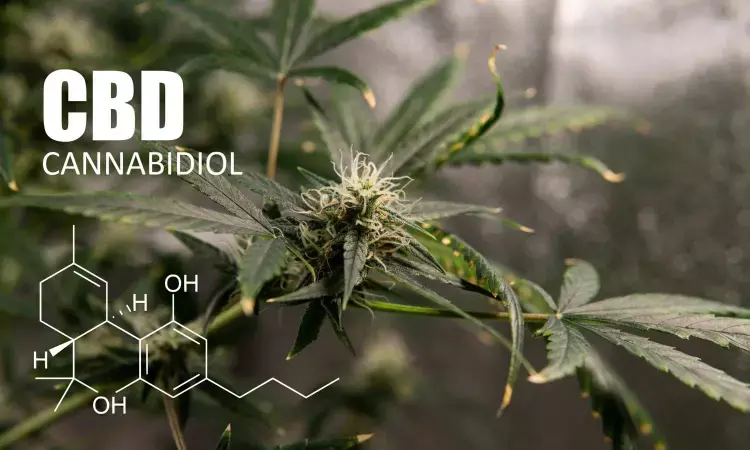- Home
- Medical news & Guidelines
- Anesthesiology
- Cardiology and CTVS
- Critical Care
- Dentistry
- Dermatology
- Diabetes and Endocrinology
- ENT
- Gastroenterology
- Medicine
- Nephrology
- Neurology
- Obstretics-Gynaecology
- Oncology
- Ophthalmology
- Orthopaedics
- Pediatrics-Neonatology
- Psychiatry
- Pulmonology
- Radiology
- Surgery
- Urology
- Laboratory Medicine
- Diet
- Nursing
- Paramedical
- Physiotherapy
- Health news
- Fact Check
- Bone Health Fact Check
- Brain Health Fact Check
- Cancer Related Fact Check
- Child Care Fact Check
- Dental and oral health fact check
- Diabetes and metabolic health fact check
- Diet and Nutrition Fact Check
- Eye and ENT Care Fact Check
- Fitness fact check
- Gut health fact check
- Heart health fact check
- Kidney health fact check
- Medical education fact check
- Men's health fact check
- Respiratory fact check
- Skin and hair care fact check
- Vaccine and Immunization fact check
- Women's health fact check
- AYUSH
- State News
- Andaman and Nicobar Islands
- Andhra Pradesh
- Arunachal Pradesh
- Assam
- Bihar
- Chandigarh
- Chattisgarh
- Dadra and Nagar Haveli
- Daman and Diu
- Delhi
- Goa
- Gujarat
- Haryana
- Himachal Pradesh
- Jammu & Kashmir
- Jharkhand
- Karnataka
- Kerala
- Ladakh
- Lakshadweep
- Madhya Pradesh
- Maharashtra
- Manipur
- Meghalaya
- Mizoram
- Nagaland
- Odisha
- Puducherry
- Punjab
- Rajasthan
- Sikkim
- Tamil Nadu
- Telangana
- Tripura
- Uttar Pradesh
- Uttrakhand
- West Bengal
- Medical Education
- Industry
Study reveals Toxic dose of THC in ingested Cannabis that leads to severe, prolonged symptoms in kids

A recent study sheds light on the correlation between tetrahydrocannabinol (THC) dosage and the severity of cannabis-related toxicity in young children. The research, conducted across a pediatric hospital network, highlights the significance of THC dose in pediatric edible cannabis ingestions. The findings were published in the American Academy of Pediatrics.
Spanning from January 1, 2015, to October 25, 2022, the retrospective analysis focused on children under the age of 6 who had consumed cannabis-infused edibles with a known THC dose. The research categorized cannabis toxicity as severe if patients exhibited pronounced cardiovascular, respiratory, or neurological effects. Respiratory failure, seizures, and unresponsiveness were among the severe symptoms noted. Additionally, toxicity was deemed prolonged if recovery took more than six hours.
The study involved 80 patients with a median age of 2.9 years. The median THC ingestion was 2.1 mg/kg. Alarmingly, 46% of cases displayed severe toxicity, while a staggering 74% exhibited prolonged toxicity. Notably, the research established THC dose as a significant predictor of both severe and prolonged toxicity, surpassing factors like age and sex. Through meticulous analysis, the study achieved an impressive 92.9% accuracy for predicting severe toxicity and 87.3% accuracy for prolonged toxicity using THC dose data.
The research's key discovery is a threshold of 1.7 mg/kg of THC, which stands out as a crucial marker for predicting adverse effects. This threshold demonstrated a sensitivity of 97.3% for identifying cases of severe toxicity and 75.4% for prolonged toxicity.
The implications of this study are profound, influencing both medical protocols and regulatory considerations. The findings underscore the importance of accurately assessing THC content in cannabis-infused edibles, particularly those accessible to children. Healthcare providers can utilize the identified THC threshold to better manage cases of cannabis toxicity in pediatric patients, allowing for more informed and targeted interventions. Furthermore, regulatory bodies can incorporate this threshold into guidelines to enhance child safety by establishing limits on THC content in edible products.
This research underscores the clear association between THC dosage and the extent of toxicity in young children who accidentally ingest cannabis-infused edibles. The study's identified THC threshold of 1.7 mg/kg offers valuable guidance for medical professionals and policymakers alike.
Source:
Pepin, L. C., Simon, M. W., Banerji, S., Leonard, J., Hoyte, C. O., & Wang, G. S. (2023). Toxic Tetrahydrocannabinol (THC) Dose in Pediatric Cannabis Edible Ingestions. In Pediatrics. American Academy of Pediatrics (AAP). https://doi.org/10.1542/peds.2023-061374
Neuroscience Masters graduate
Jacinthlyn Sylvia, a Neuroscience Master's graduate from Chennai has worked extensively in deciphering the neurobiology of cognition and motor control in aging. She also has spread-out exposure to Neurosurgery from her Bachelor’s. She is currently involved in active Neuro-Oncology research. She is an upcoming neuroscientist with a fiery passion for writing. Her news cover at Medical Dialogues feature recent discoveries and updates from the healthcare and biomedical research fields. She can be reached at editorial@medicaldialogues.in
Dr Kamal Kant Kohli-MBBS, DTCD- a chest specialist with more than 30 years of practice and a flair for writing clinical articles, Dr Kamal Kant Kohli joined Medical Dialogues as a Chief Editor of Medical News. Besides writing articles, as an editor, he proofreads and verifies all the medical content published on Medical Dialogues including those coming from journals, studies,medical conferences,guidelines etc. Email: drkohli@medicaldialogues.in. Contact no. 011-43720751


